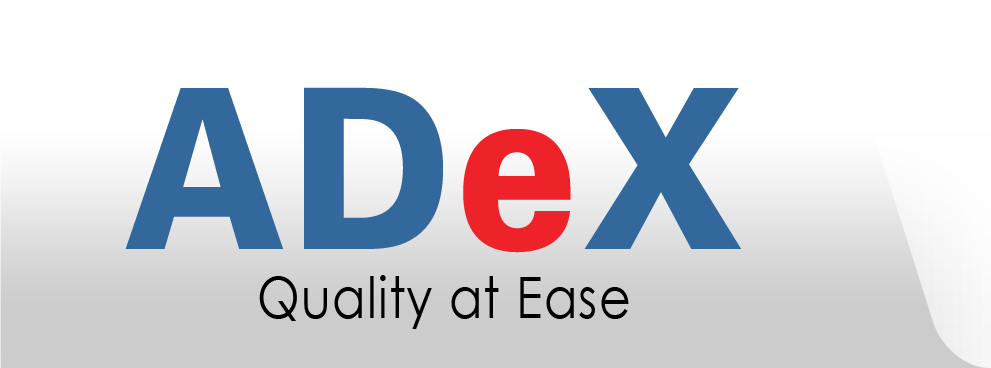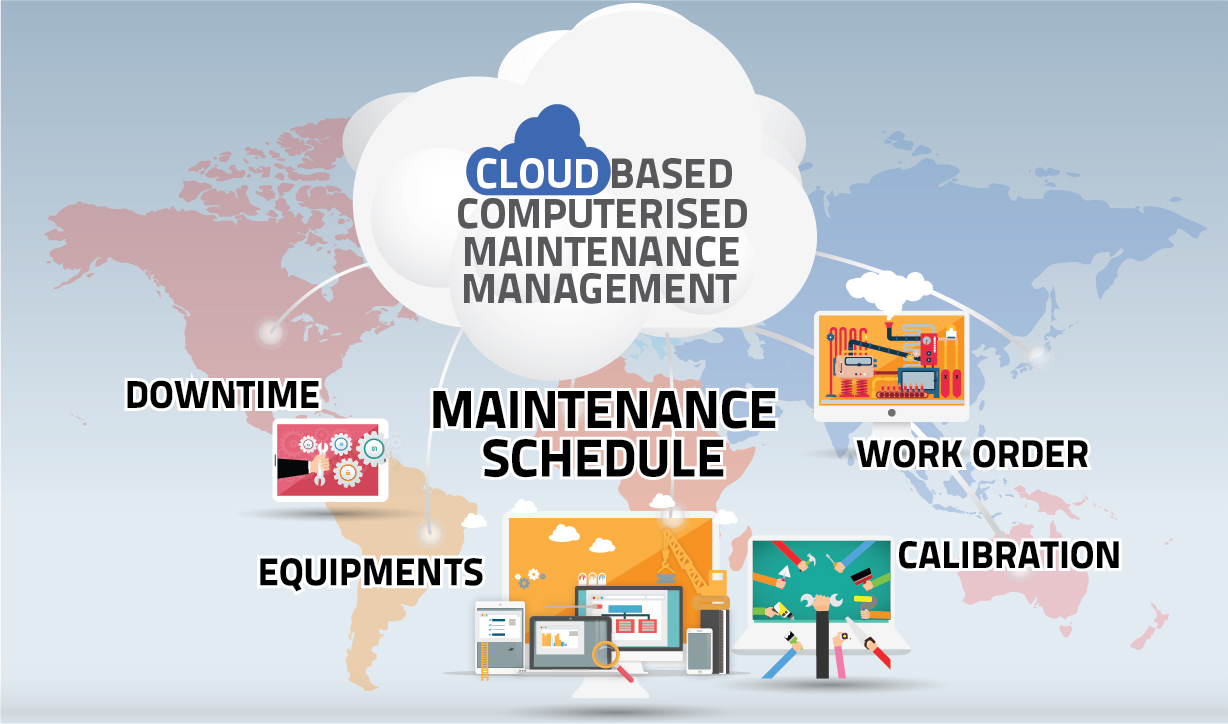HRDF - TRAINING COURSES
As an HRD Corp authorised training provider, we are dedicated to delivering high-impact, practical training solutions specifically designed to complement your digital adoption. Our team comprises highly experienced, HRD Corp certified trainers who bring a remarkable combined total of over 100 years of real-world working experience from both public and private sectors. This extensive background means our programs are grounded in practical insights, not just theory, ensuring your team gains immediately applicable skills crucial for optimsation goals. Our courses are fully customisable to perfectly align with your specific training objectives and business needs.
Our HRDF-Registered Training Programs
Computerised Maintenance Management System (CMMS)
This course empowers participants with the expertise to utilise Computerised Maintenance Management Systems (CMMS) for optimized maintenance operations. Through a combination of lectures and practical exercises, participants will develop a strong grasp of CMMS functionalities and their real-world applications. Key objectives include understanding CMMS concepts and benefits, establishing preventative maintenance schedules, and mastering the creation and tracking of work orders. Participants will also learn to generate insightful reports from CMMS data to support informed decision-making. Upon completion, participants will possess working knowledge of CMMS best practices, leading to increased efficiency in managing maintenance tasks, enhanced data-driven decisions, and improved team communication and collaboration.
HACCP and IoT Monitoring for Food Safety
This intensive two-day training course provides participants with the expertise to implement a robust food safety management system, integrating established HACCP principles with Internet of Things (IoT) technology. Through interactive sessions, practical case studies, and hands-on activities, participants will gain a thorough understanding of essential food safety concepts. The course focuses on leveraging IoT sensors and data analysis to actively monitor and maintain optimal food storage and handling conditions. Key objectives include identifying and categorising food safety hazards, developing monitoring procedures for Critical Control Points (CCPs) using both traditional and IoT methods, and implementing effective corrective actions. Participants will also learn to utilise record-keeping and verification procedures to demonstrate HACCP effectiveness and apply basic data analysis tools to interpret IoT sensor data, enabling proactive identification and mitigation of potential food safety issues.
ISO 9001:2015 Internal Auditor Training
This course provides participants with a comprehensive understanding of auditing a Quality Management System (QMS) based on the latest ISO 9001:2015 standard. Participants will acquire the essential skills to plan, conduct, and report on internal audits, ensuring organisational processes are effective and contribute to continual improvement. Whether new to internal auditing or looking to refine existing skills, this programme empowers participants to identify improvement opportunities and contribute to a robust QMS. The course objectives include gaining confidence in performing effective audits, optimising auditing skills, and developing the knowledge to ensure compliance with ISO 9001 requirements. Through practical activities, group discussions, and classroom learning, participants will learn to maintain high standards of service delivery via effective internal audits..
ISO 9001:2015 Climate Action Changes Amendments
This training module offers a thorough understanding of the recent changes to ISO 9001:2015, specifically Amendment 1 2024, which introduces new climate action requirements. Participants will discover how to seamlessly integrate climate change considerations into their quality management systems, significantly boosting their organisation's environmental sustainability. The course focuses on key changes from Amendment 1 2024, enabling participants to identify and assess climate-related risks and opportunities. Participants will develop effective strategies to mitigate climate impacts and learn to embed climate action directly into their organisation's quality management system. Upon completion, participants will confidently interpret and apply the new requirements, possess in-depth knowledge of climate change impacts on quality management, and be skilled in conducting climate-related risk assessments and developing robust climate action plans.
ISO Gap Analysis and Certification Preparation
This intensive two-day short course provides participants with the essential knowledge and practical skills for achieving ISO certification. The curriculum focuses on understanding ISO standards, mastering gap analysis techniques, and developing robust documentation requirements. Participants will learn to identify relevant ISO standards for their organisations and conduct comprehensive gap analyses to pinpoint areas for improvement. The course also covers preparing for and conducting effective internal audits, as well as implementing corrective actions to address any nonconformities. Ultimately, this course aims to equip participants with the tools to develop a structured implementation plan, ensuring their organisation is well-prepared for ISO certification and can enhance overall performance.
Navigating ISO Standard Certification Process
This two-day course is designed to prepare participants for ISO Standard certification through structured self-assessment. Ideal for quality personnel, department heads, and management representatives, the training fosters a culture of continuous improvement and enhances operational efficiency. Through a combination of expert-led lectures and interactive workshops, participants will gain a clear understanding of ISO requirements, develop key documentation, and assess organisational readiness for certification. The course also equips participants with tools to identify gaps, formulate corrective action plans, and respond effectively during certification audits.
Preventive Maintenance for Hospitality Industry
This two-day intensive course is designed to equip participants with practical knowledge and skills in preventive maintenance (PM) tailored to the hospitality sector. The programme covers key areas including PM planning, scheduling, execution, and continuous improvement. Emphasis is placed on identifying critical equipment, anticipating potential failures, and extending equipment lifespan. Participants will learn to implement effective PM procedures, optimise maintenance strategies using Computerised Maintenance Management Systems (CMMS), and analyse maintenance data for informed decision-making. By adopting a proactive approach, participants will be able to enhance operational efficiency, reduce downtime, and improve cost-effectiveness within their facilities.
TRUST Principles for Anti Bribery
This one-day training programme provides participants with essential knowledge of Malaysia’s Anti-Corruption Commission Act 2009, specifically Section 17A, and its implications for corporate liability. The course focuses on the TRUST principles—Top-level commitment, Risk assessment, Undertake control measures, Systematic review, and Training & communication—as a framework for establishing adequate procedures to prevent bribery and corruption. Participants will learn to identify corruption risks, implement effective control measures, and assess the strength of their organisation’s anti-bribery initiatives. Through practical examples and interactive discussions, the programme equips participants to evaluate current practices, develop risk mitigation strategies, and align internal procedures with legal expectations.
Corporate Integrity CISM
This two-day course provides participants with an in-depth understanding of the Corporate Integrity System and its practical implementation within organisational operations. The training covers key areas including integrity principles, governance structures, anti-corruption frameworks, and digital tools for monitoring and reporting ethical conduct. Emphasis is placed on aligning corporate practices with legal and regulatory expectations while fostering a culture of transparency and accountability. Participants will learn to identify and mitigate corruption risks, implement effective governance mechanisms, and utilise digital solutions for integrity assessments and reporting. The course also promotes ethical leadership and sustainable compliance practices as part of a broader corporate responsibility agenda.
Understanding ESG towards Certification
This three-day course provides participants with a comprehensive understanding of Environmental, Social, and Governance (ESG) principles and their application within recognised ESG frameworks. Designed to strengthen organisational sustainability efforts, the programme combines lectures, group discussions, and hands-on workshops to ensure practical learning. Participants will develop the skills to assess ESG impacts, conduct risk assessments, and integrate ESG considerations into core business processes. The course also covers best practices in ESG reporting, communication, and preparation for certification. Emphasis is placed on aligning ESG strategies with long-term business goals, enhancing transparency, and meeting stakeholder expectations.


